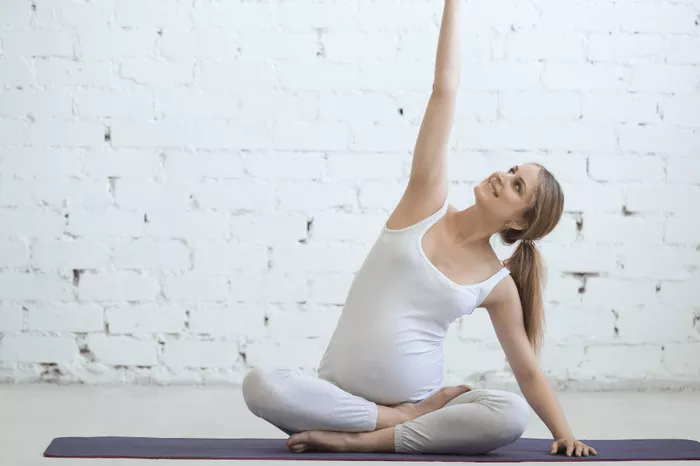Yoga is more than just a form of exercise—it is a way of life that influences physical health, mental well-being, and emotional stability. Rooted in ancient Indian traditions, yoga is a practice that integrates breath control, meditation, and postures to promote overall balance. Many people initially turn to yoga for its physical benefits, but over time, they discover its profound impact on daily life. This article explores how yoga transforms lifestyle choices, enhances mental and emotional well-being, improves physical health, and fosters deeper self-awareness.
1. Enhancing Physical Health
One of the most immediate and noticeable effects of yoga is its impact on physical health. Unlike high-intensity workouts that may strain the body, yoga gently strengthens muscles, improves flexibility, and enhances endurance over time.
Improved Flexibility and Strength
Yoga poses (asanas) stretch the body and gradually improve flexibility. Regular practice helps lengthen muscles, making everyday movements easier and reducing the risk of injury. In addition to flexibility, yoga also strengthens muscles. Poses such as Plank (Phalakasana), Warrior (Virabhadrasana), and Chair Pose (Utkatasana) build muscle strength, supporting joint health and posture.
Better Posture and Reduced Pain
Many people suffer from back, neck, and joint pain due to poor posture and prolonged sitting. Yoga encourages proper spinal alignment, which reduces stress on the lower back and shoulders. Postures like Downward Dog (Adho Mukha Svanasana) and Bridge Pose (Setu Bandhasana) help correct imbalances, relieving chronic pain.
Boosted Immune System
Yoga positively affects the immune system by reducing inflammation and improving circulation. Twisting poses, such as Revolved Triangle (Parivrtta Trikonasana) and Seated Twist (Ardha Matsyendrasana), help detoxify the body by stimulating the lymphatic system. Breathing exercises (pranayama) also enhance lung capacity and oxygenate the blood, boosting overall immunity.
Better Sleep Quality
Yoga promotes relaxation, which leads to better sleep. Poses like Legs-Up-The-Wall (Viparita Karani) and Child’s Pose (Balasana) help calm the nervous system, reducing insomnia and improving sleep patterns. The combination of deep breathing and relaxation techniques prepares the body for restful sleep.
2. Improving Mental and Emotional Well-Being
Yoga is a powerful tool for mental clarity and emotional resilience. Many practitioners notice a significant improvement in their ability to handle stress, anxiety, and negative emotions.
Stress Reduction and Relaxation
One of yoga’s most well-known benefits is its ability to reduce stress. Controlled breathing and meditation techniques activate the parasympathetic nervous system, which counteracts stress hormones like cortisol. Practicing mindfulness through yoga helps people stay present and cultivate a sense of inner peace.
Emotional Balance and Self-Awareness
Yoga encourages introspection, helping individuals connect with their emotions. Through regular practice, people develop emotional resilience, becoming less reactive to daily stressors. Meditation and deep breathing also enhance self-awareness, allowing for a deeper understanding of thoughts and emotions.
Reduced Anxiety and Depression
Studies show that yoga can help reduce symptoms of anxiety and depression. The combination of movement, breath control, and meditation stimulates the production of endorphins, serotonin, and dopamine—hormones associated with happiness. Poses like Camel Pose (Ustrasana) and Cobra Pose (Bhujangasana) help open the chest, promoting deep breathing and emotional release.
Increased Focus and Concentration
Yoga improves cognitive function by enhancing concentration and memory. Practicing balancing poses, such as Tree Pose (Vrikshasana) and Eagle Pose (Garudasana), trains the mind to focus and stay present. Meditation also strengthens mental clarity, helping individuals make better decisions in daily life.
3. Encouraging a Healthier Lifestyle
Yoga extends beyond the mat, influencing lifestyle choices related to diet, habits, and relationships.
Mindful Eating and Nutrition
Yoga encourages mindful eating, where individuals become more aware of their food choices. Practitioners often develop a preference for natural, wholesome foods that nourish the body. Many yoga enthusiasts choose plant-based or vegetarian diets, as they align with the yogic principle of Ahimsa (non-violence)—avoiding harm to oneself and others.
Increased Energy and Vitality
Unlike caffeine or artificial stimulants, yoga provides natural energy by improving blood circulation and oxygen flow. Morning yoga routines, such as Sun Salutations (Surya Namaskar), awaken the body and mind, setting a positive tone for the day.
Balanced Work-Life Integration
Many people struggle with work-life balance, leading to burnout and stress. Yoga teaches time management and helps prioritize self-care. The practice of Pranayama (breath control) and meditation provides tools to manage stress, allowing individuals to stay calm and composed in challenging situations.
4. Fostering Social and Spiritual Growth
Yoga has a profound effect on social interactions and spiritual awareness. It nurtures qualities such as compassion, gratitude, and mindfulness.
Stronger Social Connections
Yoga communities foster a sense of belonging and support. Whether practicing in a studio or attending retreats, individuals build meaningful relationships with like-minded people. Group yoga classes encourage motivation, accountability, and shared experiences.
Developing a Spiritual Connection
While yoga is not inherently religious, it fosters spiritual awareness. Meditation and breathing practices help individuals feel connected to something greater than themselves. The philosophy of yoga encourages self-reflection, gratitude, and inner peace, which enrich life on a deeper level.
Living with Purpose and Intention
Yoga encourages setting intentions (Sankalpa) before practice, which carries over into daily life. Whether it’s being more patient, showing kindness, or embracing challenges, yoga helps cultivate a purposeful and meaningful life.
Conclusion
Yoga’s impact on lifestyle goes far beyond physical fitness. It enhances mental clarity, emotional stability, and overall well-being, promoting a more mindful, balanced, and fulfilling life. Through regular practice, individuals develop better self-awareness, improved health, and a deeper sense of connection to themselves and the world around them. Whether you are a beginner or an experienced yogi, embracing yoga as a lifestyle can lead to lasting positive changes, both on and off the mat.
Related Topics:























